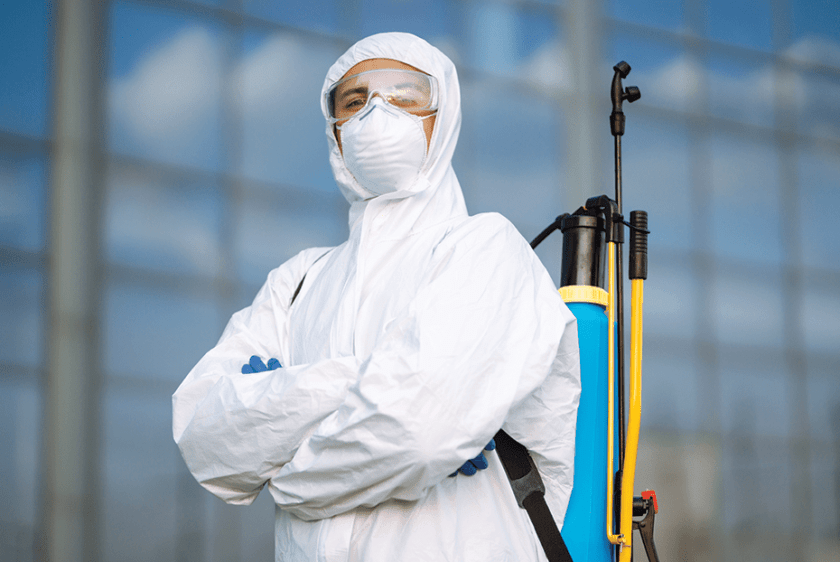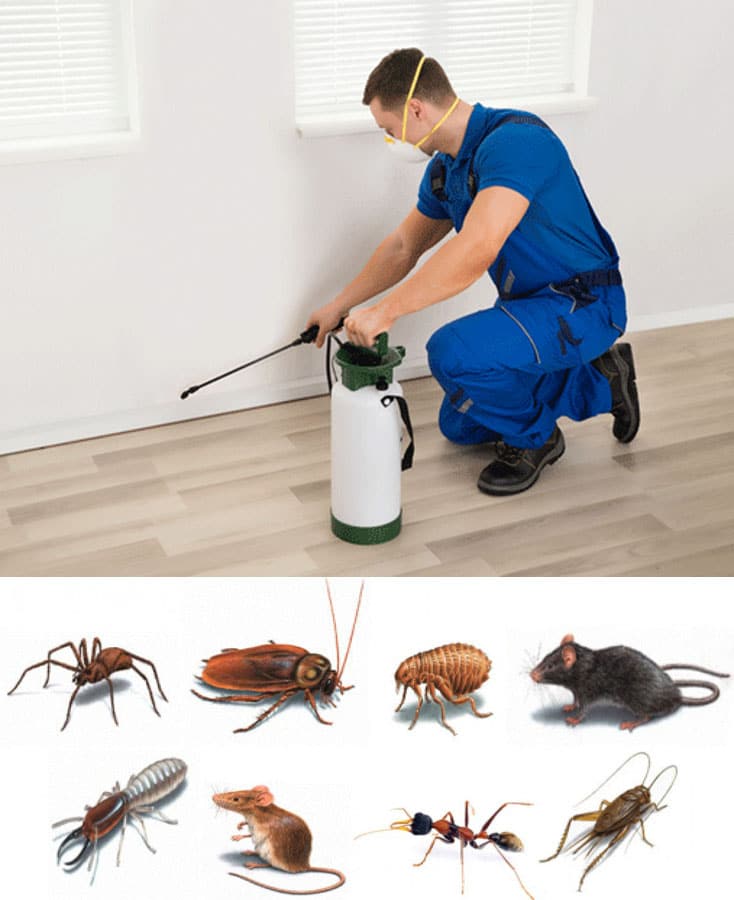Safe and Reputable Parasite Control for Lasting Protection
The significance of secure and trusted bug control can not be overemphasized, particularly in a period where ecological worries are vital. Efficient pest management requires a diverse technique that stabilizes environmental honesty with the need for effective pest reductions. By discovering eco-friendly services and integrated insect management methods, property owners can accomplish long-term protection versus invasive types while securing useful communities. The subtleties of these techniques might not be quickly clear, prompting a more detailed examination of the practices that can lead to lasting bug control end results. What actions can be taken to ensure both safety and security and effectiveness in insect administration?
Recognizing Bug Control Approaches
Parasite control incorporates a selection of approaches focused on managing and removing unwanted insects and rats that can intimidate both wellness and building. Comprehending these methods is crucial for reliable bug administration.
The main categories of parasite control methods include mechanical, organic, and chemical techniques. Mechanical techniques include physical obstacles and traps to stop parasite access and capture undesirable varieties. For example, making use of displays on home windows or utilizing sticky traps can substantially reduce insect populations without introducing harmful compounds.

Chemical parasite control is often the most recognized method, using chemicals to eliminate bugs. These chemicals can be effective but should be used with caution to avoid adverse results on non-target types and the environment.
Benefits of Eco-Friendly Solutions
How can green remedies change parasite control techniques? The adoption of eco-friendly insect control approaches offers many benefits, significantly enhancing the effectiveness and safety and security of insect administration.

Another benefit is the favorable effect on local biodiversity. Environmentally friendly remedies are created to target particular bugs while maintaining beneficial insects and wildlife, promoting a well balanced ecological community. This approach lines up with the growing consumer demand for lasting methods, boosting the credibility of pest control suppliers.
Integrated Insect Administration Methods
The implementation of environment-friendly remedies naturally leads to the adoption of Integrated Pest Management (IPM) techniques, which additionally enhance insect control efficacy. IPM is a holistic approach that combines numerous methods to manage bug populaces while lessening environmental effect. This technique emphasizes the use of biological, cultural, mechanical, and chemical controls, making sure a lasting and well balanced method of pest management.
One fundamental element of IPM is the complete evaluation of pest task and ecological conditions. By monitoring pest populations and identifying their life process, professionals can execute targeted interventions that disrupt the pest's habitat or lifecycle, reducing reliance on chemical pesticides. Additionally, social methods such as plant turning and environment manipulation can substantially decrease bug establishment and recreation.
One more important part is using biological control agents, such as advantageous bugs or bacteria, which can normally suppress parasite populations. When chemical applications are necessary, IPM focuses on using low-risk pesticides and applies them uniquely, lessening exposure to non-target organisms and humans.
Including IPM strategies not only enhances pest control efficiency but also advertises a much safer ecosystem, lining up with the growing demand for lasting practices in bug management.
Safe Practices for Home Owners
Understanding the importance of risk-free techniques go in bug control can empower house owners to properly manage insect concerns while safeguarding their health and wellness and the setting. Executing precautionary procedures and safe methods is vital in minimizing direct exposure to damaging chemicals.
Home owners should first assess their setting for conditions that draw in pests, such as standing food, mess, and water waste. Frequently cleansing and securing entrance factors can hinder parasites from attacking the home. Utilizing all-natural deterrents, such as important oils or diatomaceous earth, can supply effective alternatives to chemical pesticides.
When chemical treatments are needed, home owners should go with products that are especially classified as secure for residential use. It is important to follow application standards thoroughly to prevent overexposure. Utilizing targeted therapies in areas where insects are identified, instead than covering splashing, can substantially decrease chemical usage.
Lastly, keeping open interaction with parasite control specialists is crucial. Homeowners need to ask about the safety of products used and request eco-friendly choices whenever possible. By adopting these risk-free techniques, house owners can produce a healthier living environment while properly taking care of insect issues.

Tips for Long-Term Security
Establishing a parasite administration strategy that stresses long-lasting defense can considerably enhance the efficiency of the safe methods formerly talked about. To attain this, homeowners ought to implement normal assessments of their home, concentrating on hidden locations such as attics, basements, and crawl areas. Early discovery of pest task is critical in avoiding infestations from holding.
These practices reduce attractants that draw pests into the home. Sealing entry factors, such as cracks around doors and home windows, can effectively block prospective pest gain access to.
Landscaping ought to additionally be considered; keeping plants trimmed and maintaining a distance between vegetation and the home reduces hiding spots for insects. Using natural deterrents, such as essential oils or diatomaceous earth, can further discourage infestations without resorting to rough chemicals.
Last but not least, teaming up with a specialist parasite control solution for periodic evaluations can give an additional layer of security. These specialists can use tailored suggestions and progressed therapies, ensuring that your home remains secured versus insects in the long-term.
Verdict
Finally, trusted and safe look at this now parasite control needs a complex method that stresses environmentally friendly approaches and incorporated insect management. By carrying out natural deterrents, carrying out routine assessments, and keeping appropriate sanitation, homeowner can significantly lower pest populations while safeguarding beneficial insects and the setting. Partnership with professional bug control services boosts the effectiveness of these techniques, making sure tailored remedies that offer long lasting defense and assurance against future problems.
Effective bug management requires a multifaceted strategy that stabilizes ecological stability with the requirement for efficient insect reductions. The fostering of environment-friendly pest control techniques provides various benefits, substantially improving the efficiency and security of parasite monitoring.The execution of green services naturally leads to the adoption of Integrated Insect Management (IPM) methods, which further improve insect control efficiency. exterminator coquitlam. By keeping track of pest populaces and determining their life cycles, specialists can carry out targeted interventions that disrupt the bug's habitat or lifecycle, lowering reliance on chemical pesticides.In verdict, risk-free and dependable pest control requires a termite control multifaceted technique that highlights environment-friendly approaches and integrated insect administration